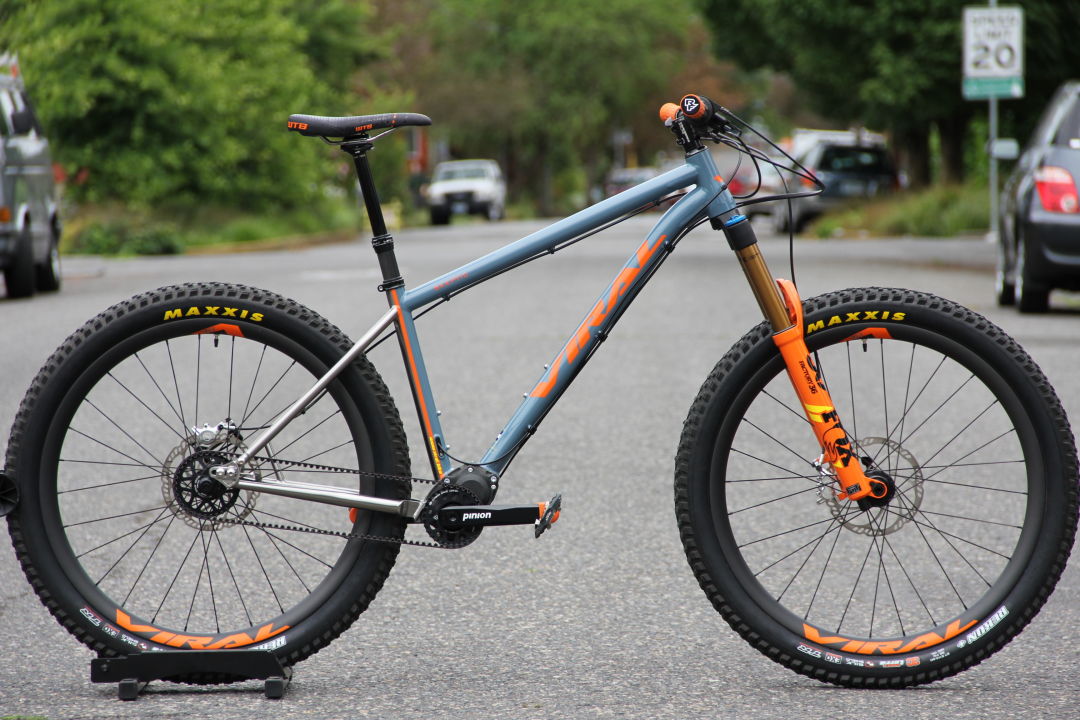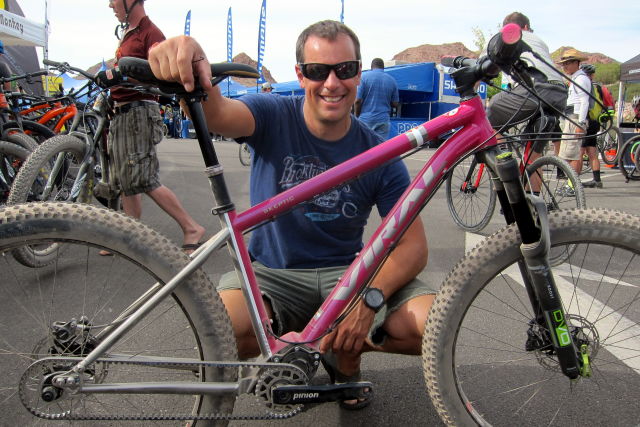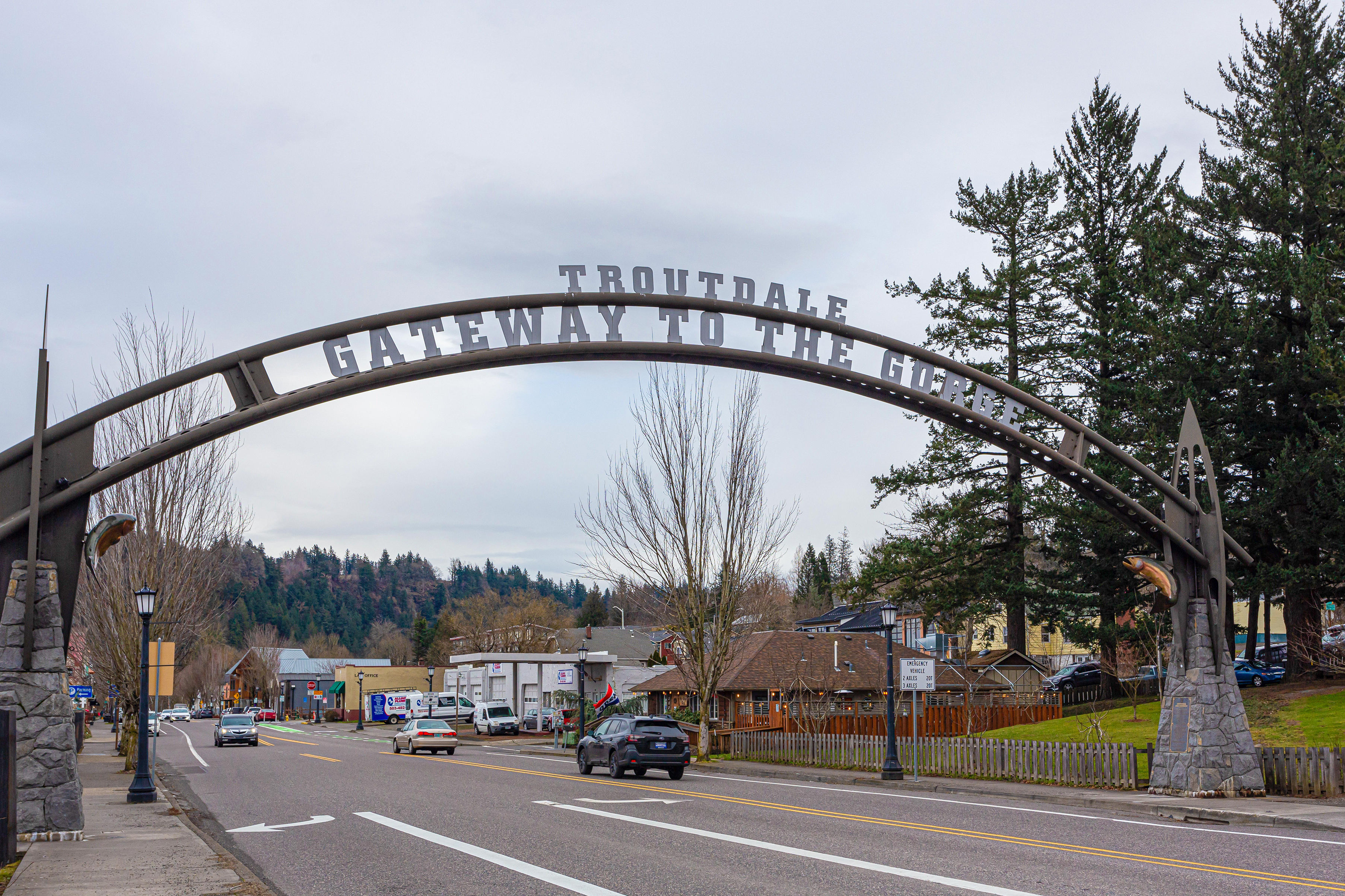Can This Portland Company Revolutionize the Mountain Bike?

Image: Steve Domahidy
Portland’s bicycle scene is changing. Steve Domahidy, founder of Denver-based company Niner Bikes (which spearheaded development on the now-standard 29-inch wheel), is now living in Portland. His new company, Viral Bikes, uses unique designs to minimize maintenance. We chatted with Domahidy, who designs the bikes, to see the next waves he’s planning on making in the cycling industry.
Tell us about your bikes...
We build mostly mountain bikes but are getting into gravel or adventure bikes, you know, off-the-pavement bikes. Sort of bikepacking bikes, which is like backpacking, but with bikes. It’s a very popular trend in the industry. Right now, though, our one and only model, the Skeptic, is a mountain bike.
What makes Viral’s mountain bikes different?
My bikes have a central gearbox, which is mounted in the middle of the frame, and it’s a gearbox that’s completely contained inside. So all of the gears are located internally; you can’t see any of them. My bikes don’t have chains either; they have a belt, like in a car. The traditional drivetrain, or derailleur system, is a system that is over a hundred years old and is pretty antiquated. It’s not really the proper application for bikes that get into the dirt, the mud, the gravel, the elements, really even for commuting. A drive train that is internal makes way more sense. It’s completely sealed from the elements and no dirt can get in. It’s constantly lubed inside and there’s zero maintenance on it. It always works.
Does anyone else do this?
Not many in the US. People are just starting to get wind of what it is and why it’s better. The company that builds the drivetrain, the actual gearbox, is a German-based company. They do quite a few bikes in the EU with these internal gearboxes, because they understand them a lot more. They have a longer history of using bikes with internal gearboxes.
Have you received any negative feedback?

Steve Domahidy with one of his bikes
Image: PINKBIKE.com
People poo-poo new technology for all the same reasons since I’ve been mountain biking in the '80s. It’s always the same. Every evolution of the mountain bike comes with people who say, “It’s too complicated! It’s too heavy!” Because it adds a little bit of weight to the bike and people are very weight-conscious. But that’s happened with every evolution of the mountain bike. The last company that I founded, Niner Bikes, specialized in the 29-inch wheel. That was 2004. And although we weren’t the first people to do the 29-inch wheel, we were kind of the first people to do it right. Now, 14 years later, the 29-inch wheel is the standard wheel for mountain bikes. So we were very much on the forefront of a massive shift in the mountain bike industry, and I believe that this is the next shift, so I’m taking a leap of faith.
Why Portland, then?
I was in L.A. and wanted to go to a city that had a better biking infrastructure. I feel like Portland rivals some European communities in terms of bicycling because it is so ingrained into the culture. Oregon’s been really open to investment capital. There isn’t really a large-scale bike production company located in Oregon, which is interesting considering how bike-centric it is. So my dog and I took a road trip up here in July and fell in love with it. We moved in August [last year]. It’s been a cool road to travel, being the one to push the idea that Oregon needs a large-scale bike company.




